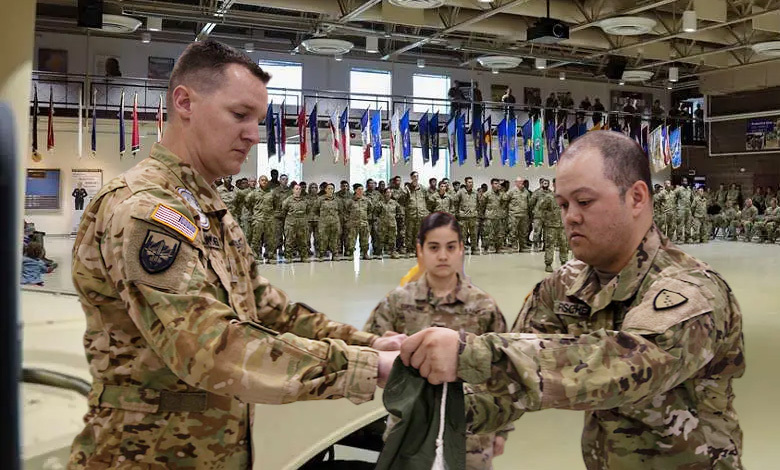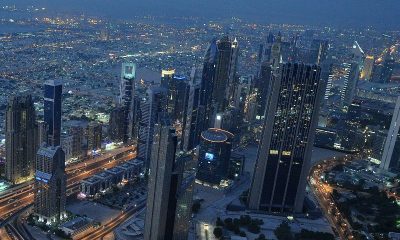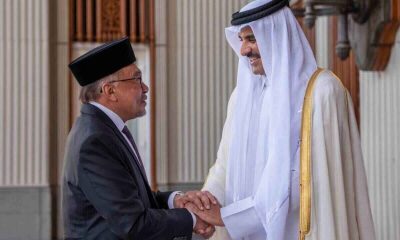The international news and media are speaking about Operation Spartan Shield again. It is an operation that keeps the Gulf area peaceful and stable. It shows how to keep the peace in the world. Even though it started in the early 2010s, Operation Spartan Shield is still changing to keep up with the ever-changing security landscape.
What is Operation Spartan Shield?
The Gulf region has a long and interesting history that goes back thousands of years. There has been a lot of political unrest and instability in this area. European countries started to set up trading posts in the Gulf region in the 1600s, mostly to get their hands on valuable goods like pearls and spices.
After the oil finding in Bahrain in 1932, the whole trade and concept of economy changed in the Gulf region. It attracted trade, workforce from Europe to Gulf but also raised tension of radical politics and instability in this gulf region.
Operation Spartan Shield (OSS) is started by US-USARCENT in the region of Middle east and Gulf nations in the year of 2011. The main moto behind this operation is to maintain peace and stability in the region of gulf.
Many joint exercises, security meetings, and forming partnerships are growing preacfully after this operation. Its main goals are to improve border security, make host-nation forces stronger and more ready, and deal with potential threats in a smart way.
Read More: From Desert To Hydrogen Hub, Oman’s New Game-Changer Plan Revealed!
Saudi Arabia, Jordan, Kuwait, and other Gulf Cooperation Council (GCC) members are among the most important countries taking part in Operation Spartan Shield.
Ongoing Changes after Operation Spartan Shield:
Operation Spartan Shield will continue to be able to adapt as the security situation in the region changes. This help the region to grow under peace.
Operation Spartan Shield is an important military operation that plays a key role in keeping the Gulf region stable. There are a number of strategies and tactics that were used in this operation. Since it began in 2011, this operation has been working with Gulf Cooperation Council (GCC) countries to help them improve their security and keep the region stable. This operation will only work if it uses key strategies and tactics that deal with the complicated problems that the Gulf region faces.
1.Forging Partnerships: One of Operation Spartan Shield’s main goals is to form partnerships with GCC countries. Together with these countries, this operation has built strong ties through training programmes, joint exercises, and sharing of information and resources.
2. Improving Military Power: Improving military power in GCC countries is another important strategy used by Operation Spartan Shield. This means giving their armed forces training and support, such as programmes to update and modernise equipment.
3.Fight with terrorism: Terrorist groups like ISIS, Al-Qaeda, and other extreme groups have caused a lot of trouble in the Gulf region. To fight this threat, Operation Spartan Shield works closely with partner countries to create strategies to fight terrorism and carry out joint operations against these groups.
Some parts of Operation Spartan Shield are part of the U.S.
Operation Spartan Shield is a very important part of U.S. strategy. Operation Spartan Shield is still a very important part of working towards the goals of peace and safety in a world that values these things very highly.
As long as the US wants to keep things stable in the Gulf region, Operation Spartan Shield (OSS) will have both challenges and chances in the future. It has been very important in helping regional allies, keeping enemies at bay, and making sure that people can freely travel on important waterways.
Latest Update On Operation Spartan Shield:
At a send-off ceremony on September 29, nearly 100 Alaska Army National Guardsmen were assigned to Bravo Company, 1st Battalion, 297th Infantry Regiment for deployment to the Middle East.
The Alaska National Guard Armoury on Joint Base Elmendorf-Richardson hosted friends, family, and fellow guardsmen before the “Bison” Company left for Fort Bliss, Texas, for their final deployment training.
In his ceremony speech, battalion commander Lt. Col. Luke Bushatz praised the guardsmen’s tenacity in defending basic freedoms.
Bushatz told the regiment, “Over the past year, I have seen you persevere through difficult conditions and grow into an effective and cohesive team.” “You will grow significantly as a company and as individuals over the next ten months.”
Operation Spartan Shield will send the 1-297th to Kuwait in November to help U.S. Central Command secure the region.
Capt. Richard Collins, Commander of the “Bison” Company, said the 1-297th had more than 100 days of cumulative training last year, exceeding the minimum requirements for deployment.
Early this summer, the 1-297th, and 29th IBCT held a month-long combat operation training exercise at Fort Polk’s Joint Readiness Training Centre. The training session prepared them for Kuwait deployment.
Sgt. 1st Class Sean Carey, the company’s platoon sergeant, says the deployment, which will last just under a year, will give soldiers their first overseas experience.
Carey has deployed to Afghanistan, Kosovo, and Kuwait with the National Guard.
Seven battalions make up the Hawaii Army National Guard’s 29th Infantry Brigade Combat Team, including the 1-297th. The team has four battalions in Hawaii and more in Alaska, Guam, and Arizona.
Though there are problems but OSS helping the region to grow and make progress in the future. One chance is to strengthen ties with Gulf Cooperation Council (GCC) countries like the UAE, Saudi Arabia, Kuwait, Qatar, Bahrain, Oman, and Qatar.






















